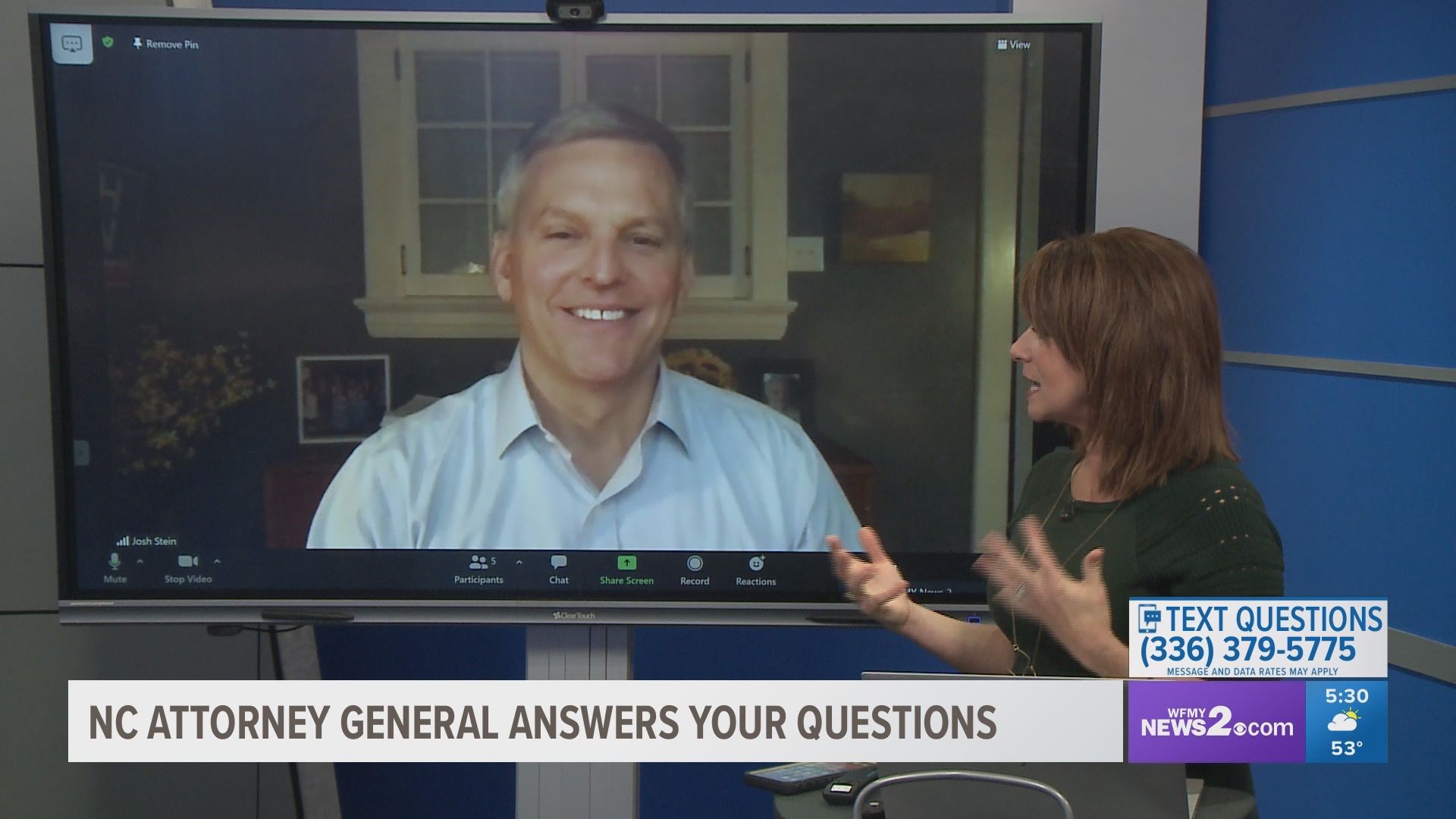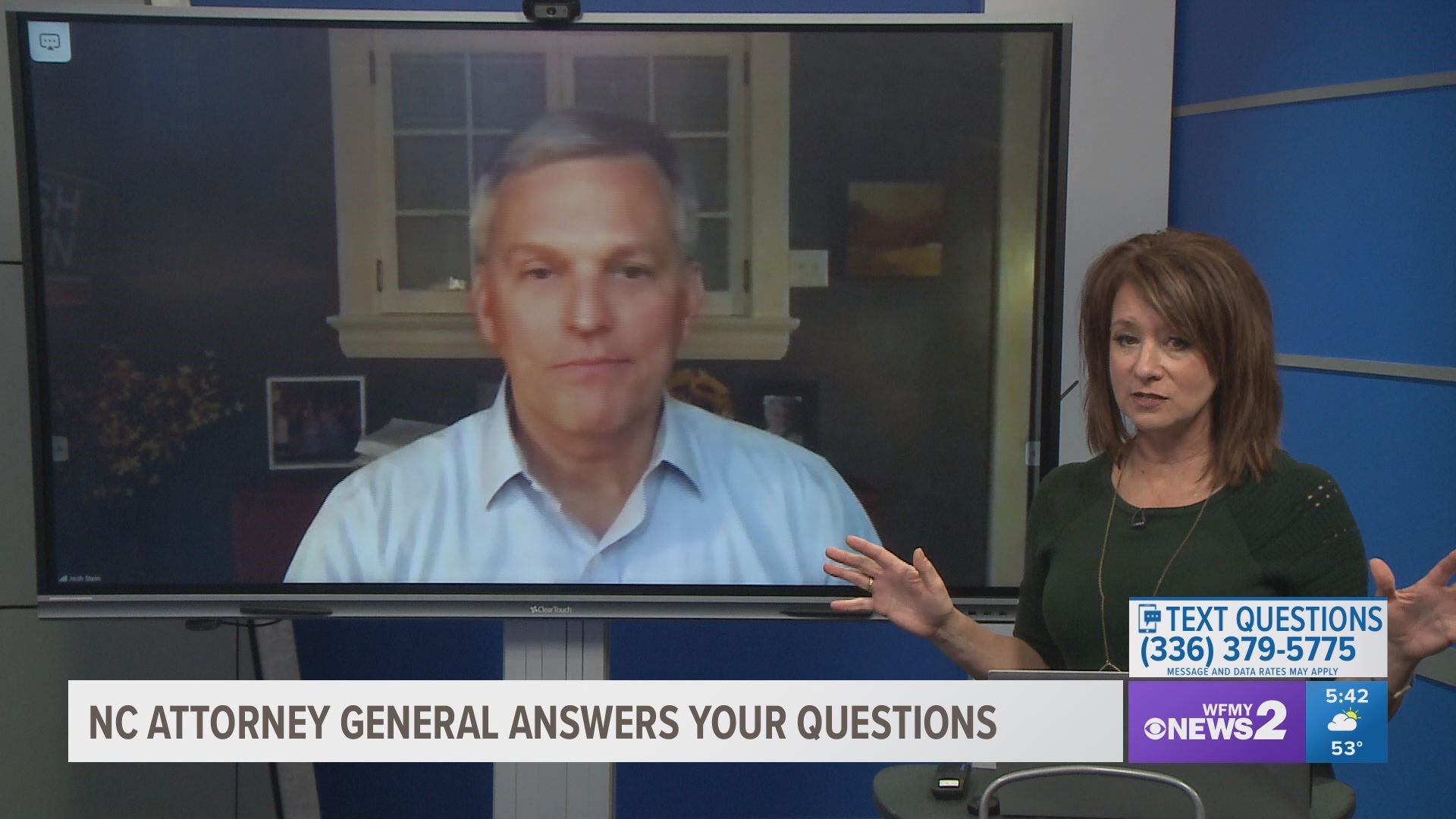GREENSBORO, N.C. — The pandemic has caused a lot of confusion including with student loan policies and the possibility of debt forgiveness. NC Attorney General Josh Stein said criminals are taking advantage by using your confusion and stress to try to trick you into falling for student loan scams. He joined us on 2 Wants to Know to share some tips to avoid common scams.
First, always be skeptical. Remember, if it sounds too good to be true, it almost always is. Be extremely wary of anyone who promises total loan forgiveness or assures fast loan forgiveness. Most loan forgiveness programs are conditional on a certain amount of repayment or a certain number of years working in your chosen field, and you should talk with your loan servicer directly to understand your options.
Also, beware of anyone charging an upfront fee to assist you with student loan debt. Under North Carolina law, it’s illegal for anyone to charge an upfront fee to modify borrowers’ debts. You do not have to pay anyone to receive student loan debt relief assistance. Instead, go to the U.S. Department of Education’s website, www.studentaid.gov, to learn how to contact your servicer to modify your loans.
If you receive an email or phone call about student loan debt forgiveness, do not provide any personal information. Your loan servicer and the Education Department will not ask you for personal information over the phone or in an email. If you have received an email, make sure it is being sent from an address ending in “.gov” or from an email address you know to be from your loan servicer. If you have any doubts, contact your loan servicer directly.
A scammer may also try to pressure you into thinking you need to act fast, or you will no longer be eligible for a reduced payment or loan modification. Legitimate companies do not use these urgent and aggressive techniques.
Think very carefully before you use a debt relief company. Almost all student loan debt relief companies keep your money as their fees, instead of making your payments. In almost all situations, you can modify your loans yourself by contacting your loan servicer or the Education Department.
Also, never provide your Federal Student Aid ID (FSA ID) password to anyone. This is private information that neither the Education Department nor your loan servicer will request. If you are being asked for your FSA ID password, it is likely a scam – don’t share it.
If you think you have been a victim of these scams, log in and change your FSA ID. Contact your student loan servicer immediately to let them know and find out your loan status. Contact your bank or credit card company to suspend all payments to the student loan debt relief company. And contact the attorney general's office at ncdoj.gov/complaint or 1-877-5-NO-SCAM to file a complaint. You can also file a complaint with the Federal Trade Commission (FTC) and alert them that you have been scammed.


